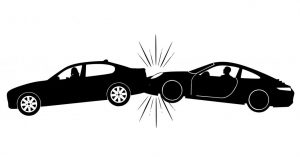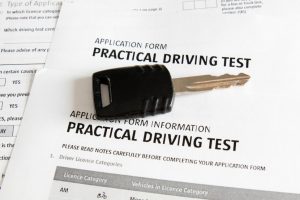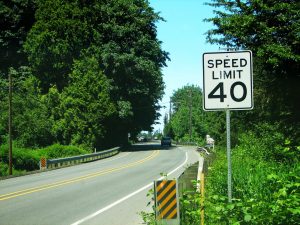 Hundreds of thousands of seniors are hurt or killed in car accidents each year. More than 200,000 drivers over the age of 65 were injured in crashes in 2016, over 3,500 were fatal. Seniors are some of the safest drivers- they are more likely to wear seat-belts, drive sober, and observe speed limits. Yet they are more likely to die in a car crash than other age groups. Behind teenage drivers, seniors have the highest crash death rate per mile driven. With the population living longer, AAA researchers have found that older drivers are now outliving the age when they can drive safely by 7-10 years. In Rhode Island alone, 20% of drivers are over age 65. The personal injury lawyers at Tapalian Law are always concerned about safe driving habits. After all, we see clients every day, from new teenage drivers to senior citizens, who suffer from serious car accident related injuries. Our RI injury attorneys know the life-long implications car accident injuries can have on a victim. An aging person’s body is not as agile and flexible as it once was and may not heal from injuries as quickly as a younger person, further complicating the recovery process. It may be a difficult or embarrassing topic to broach with aging parents. And that’s probably why over 80% of aging drivers never talk to a doctor or family member about it. Typically, when they do it is often too late and happens after a crash or near-collision while on the road.
Hundreds of thousands of seniors are hurt or killed in car accidents each year. More than 200,000 drivers over the age of 65 were injured in crashes in 2016, over 3,500 were fatal. Seniors are some of the safest drivers- they are more likely to wear seat-belts, drive sober, and observe speed limits. Yet they are more likely to die in a car crash than other age groups. Behind teenage drivers, seniors have the highest crash death rate per mile driven. With the population living longer, AAA researchers have found that older drivers are now outliving the age when they can drive safely by 7-10 years. In Rhode Island alone, 20% of drivers are over age 65. The personal injury lawyers at Tapalian Law are always concerned about safe driving habits. After all, we see clients every day, from new teenage drivers to senior citizens, who suffer from serious car accident related injuries. Our RI injury attorneys know the life-long implications car accident injuries can have on a victim. An aging person’s body is not as agile and flexible as it once was and may not heal from injuries as quickly as a younger person, further complicating the recovery process. It may be a difficult or embarrassing topic to broach with aging parents. And that’s probably why over 80% of aging drivers never talk to a doctor or family member about it. Typically, when they do it is often too late and happens after a crash or near-collision while on the road.
Why Are Seniors More Likely to Die in Car Crashes?
Fatality rates for older drivers are 17% higher than for 25-64-year-old drivers. Seniors are more likely to die in a car crash than younger people, largely due to having more fragile bodies and underlying medical conditions that can worsen injuries and hinder recovery. But it’s not just the plain fact of old age that can impair older drivers and cause auto accidents. Many other aspects of aging can impede safe driving habits. As personal injury accident lawyers, we see medication side effects or health circumstances frequently factor into car accidents involving older adults. Over 75% of drivers age 65 and older use one or more medication which can potentially impact their driving ability. As we age, it is common to experience vision changes, hearing loss, delayed reaction time, and mind and cognition impairment. Weaker muscles, decreased flexibility, and reduced range of motion can affect and restrict the ability to hold and turn a steering wheel and press the gas or brake. Arthritis affects half of the middle-aged population and 80% of those in their 70’s. It can cause crippling joint inflammation making the turning, flexing, and twisting needed to operate a motor vehicle and react quickly, painful or physically impossible.
 A common question personal injury lawyers receive is: What can I expect when it comes to a settlement for my commercial vehicle accident? The answer is probably not what you want to hear, but it’s necessary and truthful: It varies depending on a variety of factors, just like with car accidents and many other types of personal injury law. The complexity of trying to get the commercial vehicle accident settlement you deserve for your specific case is exactly why you need to have top-notch legal representation on your side. Below, our Providence personal injury attorneys will go through a brief overview of the basics of commercial vehicle accident settlements in Rhode Island, how the amounts are determined, and some things you can expect when going through the process.
A common question personal injury lawyers receive is: What can I expect when it comes to a settlement for my commercial vehicle accident? The answer is probably not what you want to hear, but it’s necessary and truthful: It varies depending on a variety of factors, just like with car accidents and many other types of personal injury law. The complexity of trying to get the commercial vehicle accident settlement you deserve for your specific case is exactly why you need to have top-notch legal representation on your side. Below, our Providence personal injury attorneys will go through a brief overview of the basics of commercial vehicle accident settlements in Rhode Island, how the amounts are determined, and some things you can expect when going through the process. Rhode Island Accident Lawyer Blog
Rhode Island Accident Lawyer Blog


 Governor Charlie Baker continues his push to crack down on drugged driving laws in Massachusetts. Baker’s legislation attempts to close many of the loopholes that allow motorists, such as the driver that killed State Trooper Thomas Cardy, to go free of penalty for driving under the influence of certain drugs and causing injury or death. Baker’s proposal, originally filed in 2019, has been refiled and named after Cardy, who was killed in 2016 during a traffic stop by a medical marijuana patient who was convicted of involuntary manslaughter, but acquitted of driving under the influence of cannabis. As a personal injury lawyer in Massachusetts and Rhode Island for over 20 years, Attorney David Tapalian sees a tragic number of
Governor Charlie Baker continues his push to crack down on drugged driving laws in Massachusetts. Baker’s legislation attempts to close many of the loopholes that allow motorists, such as the driver that killed State Trooper Thomas Cardy, to go free of penalty for driving under the influence of certain drugs and causing injury or death. Baker’s proposal, originally filed in 2019, has been refiled and named after Cardy, who was killed in 2016 during a traffic stop by a medical marijuana patient who was convicted of involuntary manslaughter, but acquitted of driving under the influence of cannabis. As a personal injury lawyer in Massachusetts and Rhode Island for over 20 years, Attorney David Tapalian sees a tragic number of  Although Spring beckons, national news sources recently reported a surge in death tolls related to winter storms across the United States. In Rhode Island, we are no stranger to snow storms and the state’s proximity to the ocean makes nor’easters and winter blizzards a common occurrence throughout the winter months. The freezing rain, heavy slush, snow, and ice result in treacherous road conditions. These weather conditions increase the likelihood of a Rhode Island car accident.
Although Spring beckons, national news sources recently reported a surge in death tolls related to winter storms across the United States. In Rhode Island, we are no stranger to snow storms and the state’s proximity to the ocean makes nor’easters and winter blizzards a common occurrence throughout the winter months. The freezing rain, heavy slush, snow, and ice result in treacherous road conditions. These weather conditions increase the likelihood of a Rhode Island car accident. Anyone who has ever been involved in a Rhode Island
Anyone who has ever been involved in a Rhode Island  Motor vehicle accidents involving pedestrians have been on a sharp rise over the past decade throughout the country. In fact, pedestrian fatalities have increased 35% since 2008, compared to a 6% decrease in all other motor vehicle crashes in the same period. A recent
Motor vehicle accidents involving pedestrians have been on a sharp rise over the past decade throughout the country. In fact, pedestrian fatalities have increased 35% since 2008, compared to a 6% decrease in all other motor vehicle crashes in the same period. A recent  Motor vehicle accidents are the leading cause of death for Rhode Island teenagers aged 15-17 and the leading cause of fatality and injury for adolescents nationwide. Over the year’s vehicle safety has improved tremendously, but teenage drivers have not. In fact, the first year with a license is the most dangerous period in a driver’s life, according to
Motor vehicle accidents are the leading cause of death for Rhode Island teenagers aged 15-17 and the leading cause of fatality and injury for adolescents nationwide. Over the year’s vehicle safety has improved tremendously, but teenage drivers have not. In fact, the first year with a license is the most dangerous period in a driver’s life, according to  Since the legalization of marijuana movement began in the U.S., health and safety experts have been trying to measure the potential impact it would have on traffic accidents. Without ample past reliable data to go off, much of the results so far have been inconsistent. However, according to a new set of studies by the Insurance Institute for Highway Safety’s (IIHS) Highway Loss Data Institute,
Since the legalization of marijuana movement began in the U.S., health and safety experts have been trying to measure the potential impact it would have on traffic accidents. Without ample past reliable data to go off, much of the results so far have been inconsistent. However, according to a new set of studies by the Insurance Institute for Highway Safety’s (IIHS) Highway Loss Data Institute,  Hundreds of thousands of seniors are hurt or killed in car accidents each year. More than 200,000 drivers over the age of 65 were injured in crashes in 2016, over 3,500 were fatal. Seniors are some of the safest drivers- they are more likely to wear seat-belts, drive sober, and observe speed limits. Yet they are more likely to die in a car crash than other age groups. Behind teenage drivers, seniors have the highest crash death rate per mile driven. With the population living longer,
Hundreds of thousands of seniors are hurt or killed in car accidents each year. More than 200,000 drivers over the age of 65 were injured in crashes in 2016, over 3,500 were fatal. Seniors are some of the safest drivers- they are more likely to wear seat-belts, drive sober, and observe speed limits. Yet they are more likely to die in a car crash than other age groups. Behind teenage drivers, seniors have the highest crash death rate per mile driven. With the population living longer,  For most, Memorial Day marks the beginning of summer in Rhode Island and beyond. Commonly, a weekend filled with cookouts, celebrations and often, alcohol. Alcohol and impaired driving plays a huge role in why Memorial Day weekend is one of the deadliest weekends for auto accident fatalities. For the second year in a row, the
For most, Memorial Day marks the beginning of summer in Rhode Island and beyond. Commonly, a weekend filled with cookouts, celebrations and often, alcohol. Alcohol and impaired driving plays a huge role in why Memorial Day weekend is one of the deadliest weekends for auto accident fatalities. For the second year in a row, the  Rhode Island recently joined the ranks of six other states to ban a particular style of highway guardrail, the Lindsay X-LITE, due to concerns over the barriers crash safety. The X-LITE guardrails are believed by some to cause potential death or personal injury in car accidents by piercing, or impaling, the vehicles that come into contact with the barrier during a car crash. Several fatal crashes in the U.S. have involved this style of guardrail and the
Rhode Island recently joined the ranks of six other states to ban a particular style of highway guardrail, the Lindsay X-LITE, due to concerns over the barriers crash safety. The X-LITE guardrails are believed by some to cause potential death or personal injury in car accidents by piercing, or impaling, the vehicles that come into contact with the barrier during a car crash. Several fatal crashes in the U.S. have involved this style of guardrail and the